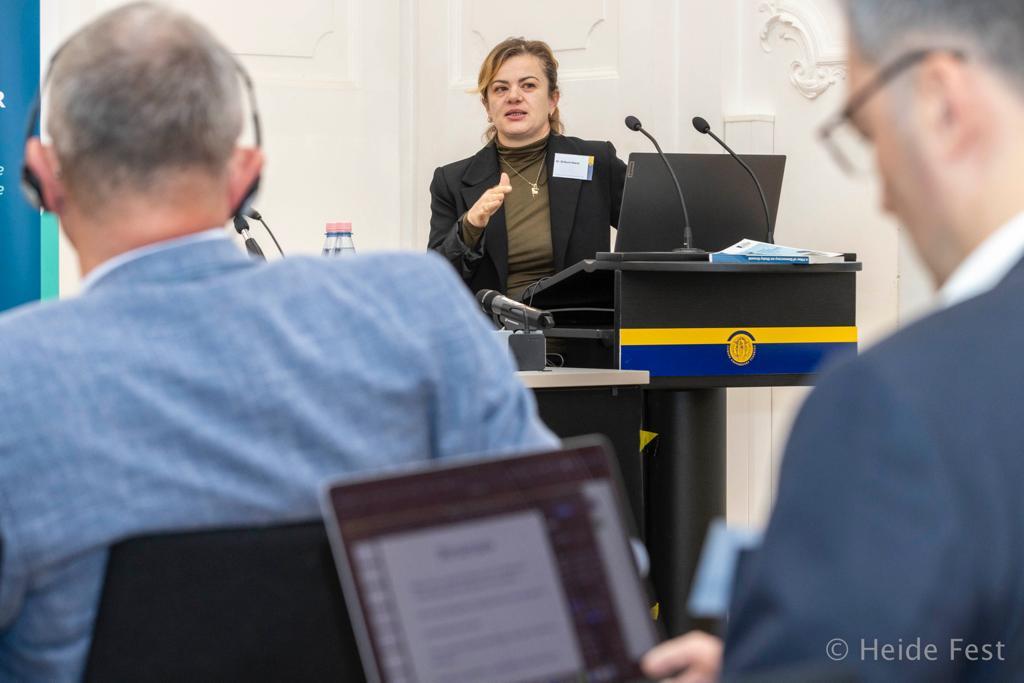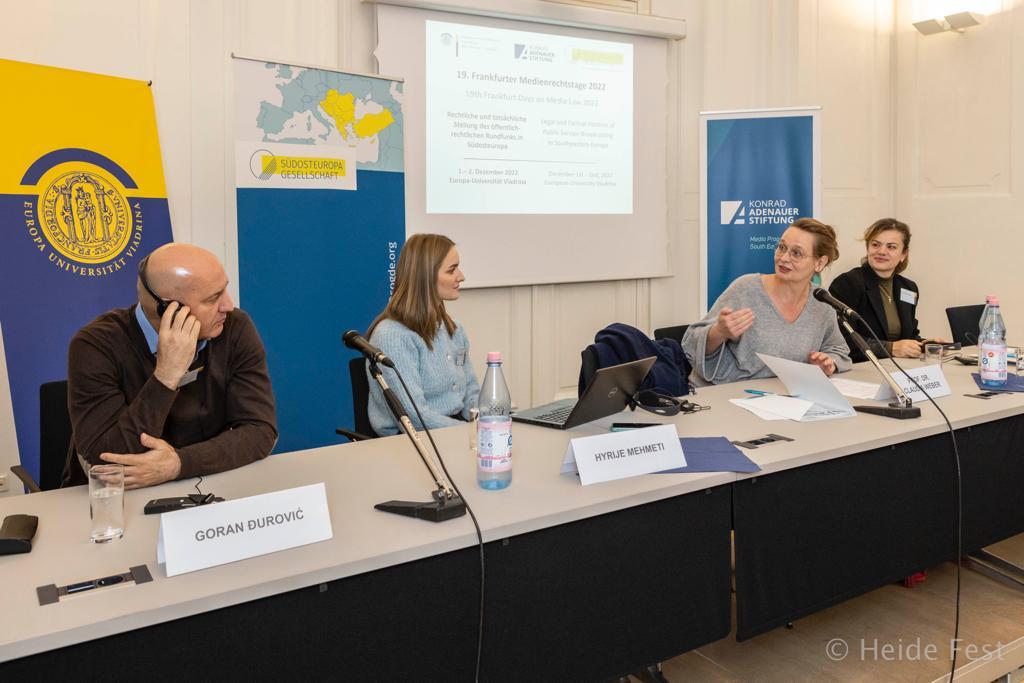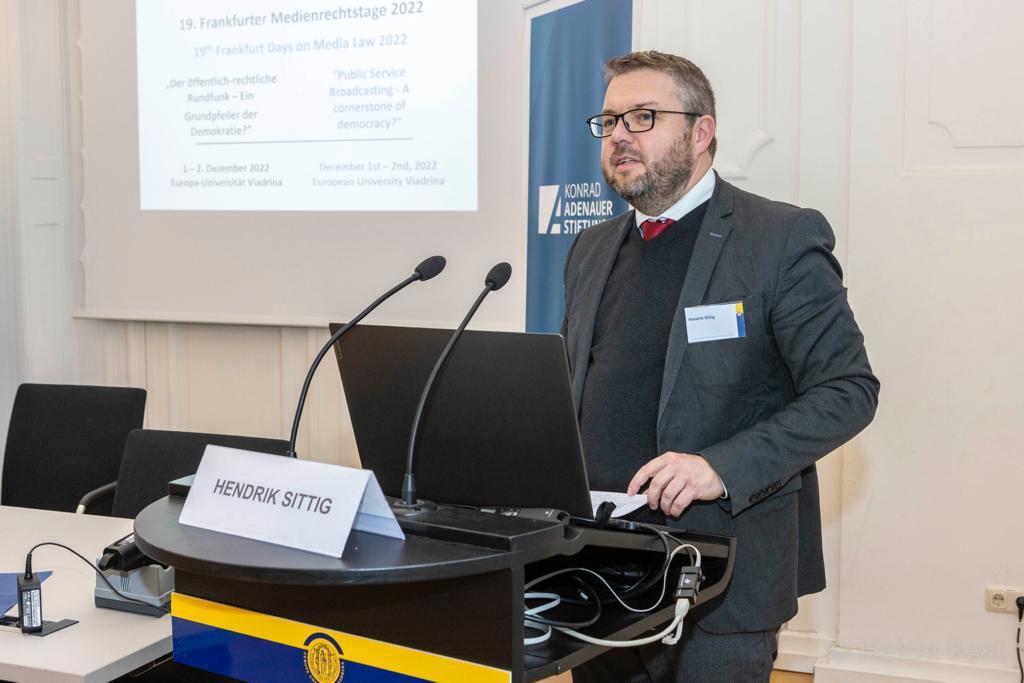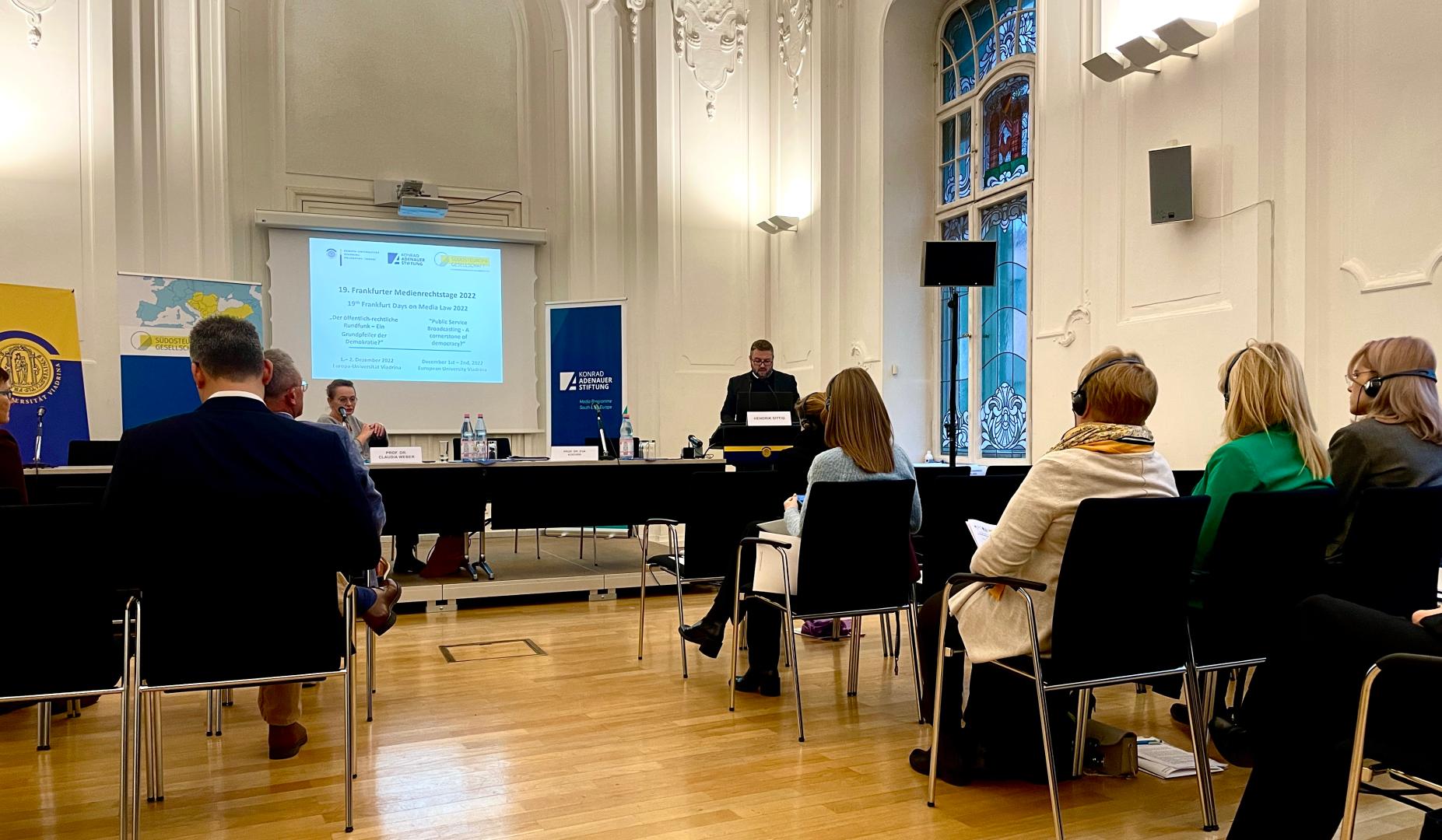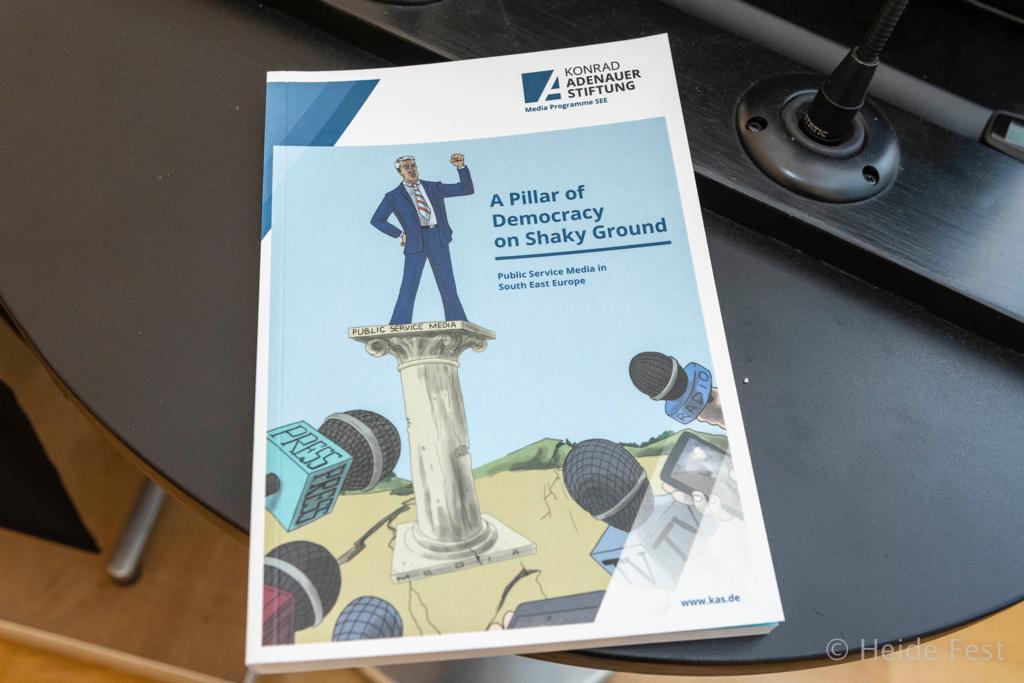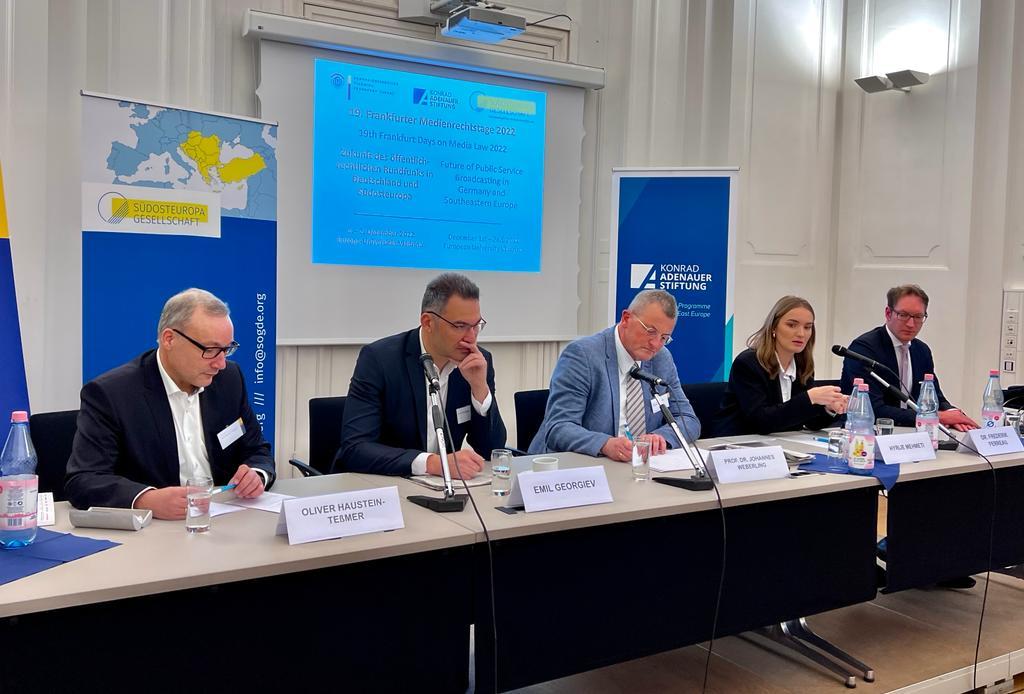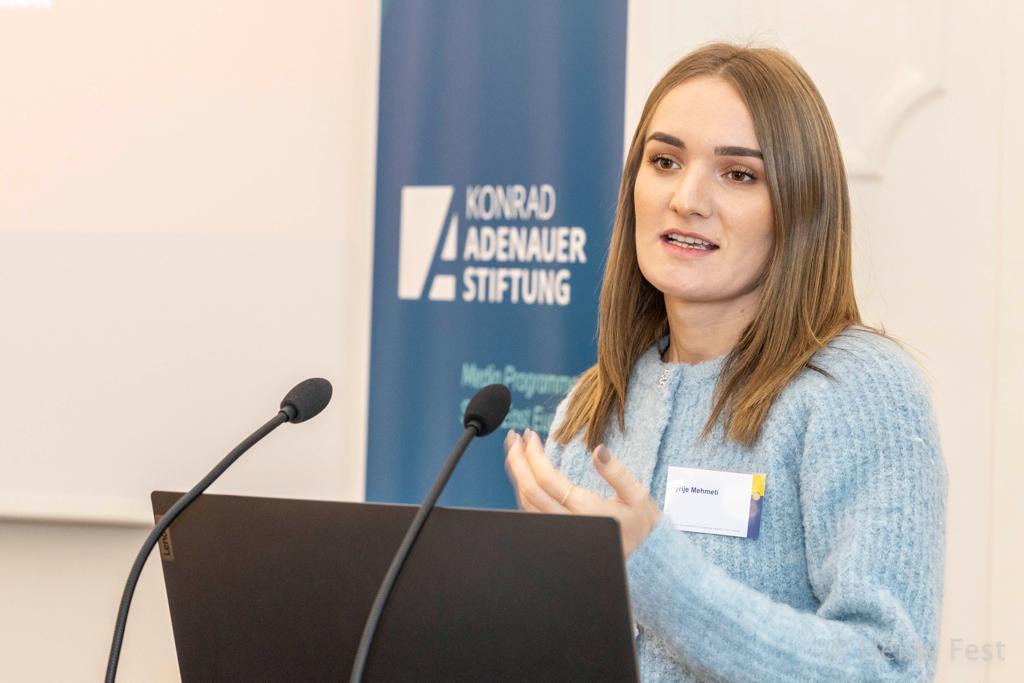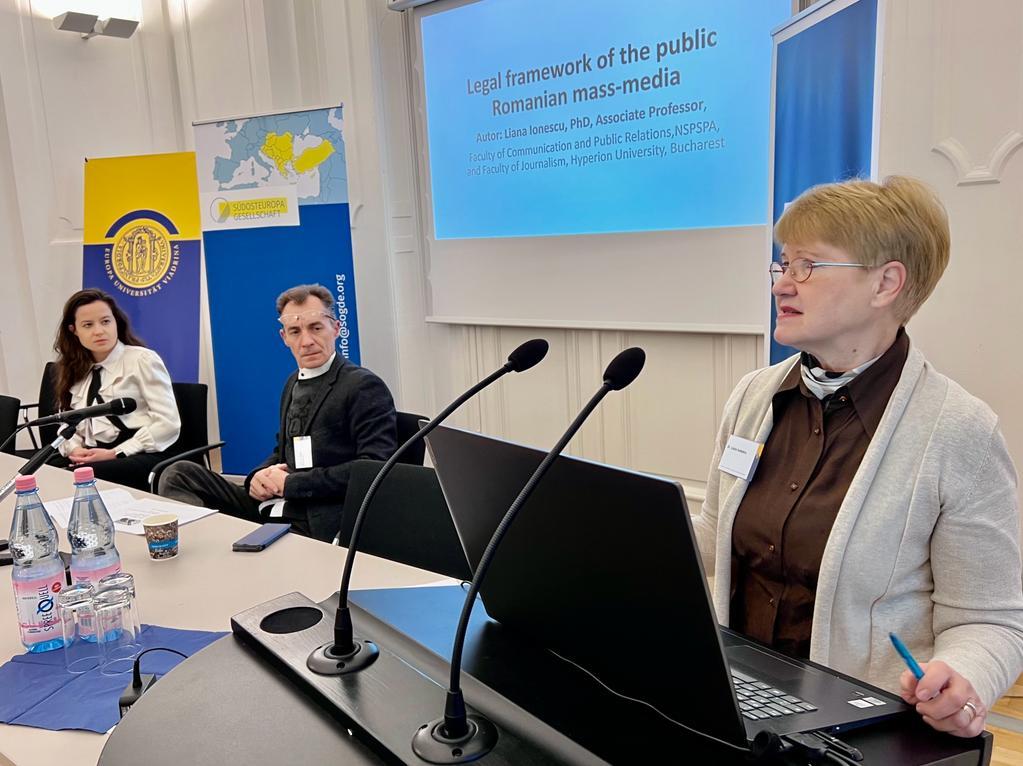The public broadcaster should, according to its duties, be the symbol of a diverse and quality-oriented media landscape. Its reporting should be factual, impartial and objective and appeal to large segments of the population. However, it can also quickly become a state broadcaster or even a propaganda station for autocratic governments. Its funding is the subject of ongoing debate in many countries. And in Germany, misconduct by executives is currently undermining the legitimacy of public broadcasting. In what direction must public broadcasting move in order to continue to fulfill its mission in the future?
The 19th Frankfurt Media Law Days, held at the European University Viadrina in Frankfurt (Oder) on December 1 and 2, 2022, focused on this topic. Eight experts from Southeastern Europe and two from Germany took part and presented the legal framework of public broadcasting in their countries as well as their expectations for its future.
The event was opened by Prof. Dr. Eva Kocher, Executive President of the European University Viadrina, Hendrik Sittig, Director of the KAS Media Programme, and Prof. Dr. Claudia Weber, representative of the Southeast European Society. Sittig emphasized that public broadcasting is an essential part of democracy. He pointed out the need for reforms in some areas of public broadcasting in Germany as well as some of the biggest challenges in Southeast Europe.
The first day of the conference was dedicated to the country reports of the experts from Southeast Europe invited by the KAS Media Programme. Brikena Kasmi (Albania), Emil Georgiev (Bulgaria), Hyrije Mehmeti (Kosovo), Cristina Durnea (Moldova), Goran Durovic (Montenegro), Aneta Andonova (North Macedonia), Liana Ionescu (Romania) and Dejan Milenkovic (Serbia) outlined the legal framework and the functioning of public broadcasters in their countries. Their presentations made it clear that there are a number of common problems and challenges in the region. Nevertheless, the experts agreed that the role of public broadcasters was crucial for the good functioning of a democracy.
The second day began with two keynote speeches on the topic of " Public Service Broadcasting in Germany – (Not) a model for Europe?" by Dr. Frederik Ferreau, University of Cologne, and Oliver Haustein-Tessmer, Editor-in-Chief of the Lausitzer Rundschau. Both not only explained the model of public broadcasting in Germany, but also described in which areas it is a good example for other countries and in which areas it is not.
The Media Law Days concluded with a discussion - moderated by Prof. Dr. Johannes Weberling - on the topic of " Future of Public Service Broadcasting in Germany and Southeast Europe". Dr. Ferreau and Mr. Haustein-Tessmer gave their insights on Germany, while Hyrije Mehmeti and Emil Georgiev drew a conclusion on the situation in Southeast Europe.
Topics
On the Self-inflicted Causes of the Crisis in Journalism
The fire disaster in Kočani: Shock for state and society in North Macedonia
Why an independent Digital Ministry is indispensable and how it could be structured
Renewal of political parties - Digitalisation and political parties
Which News Can Still Be Trusted?



